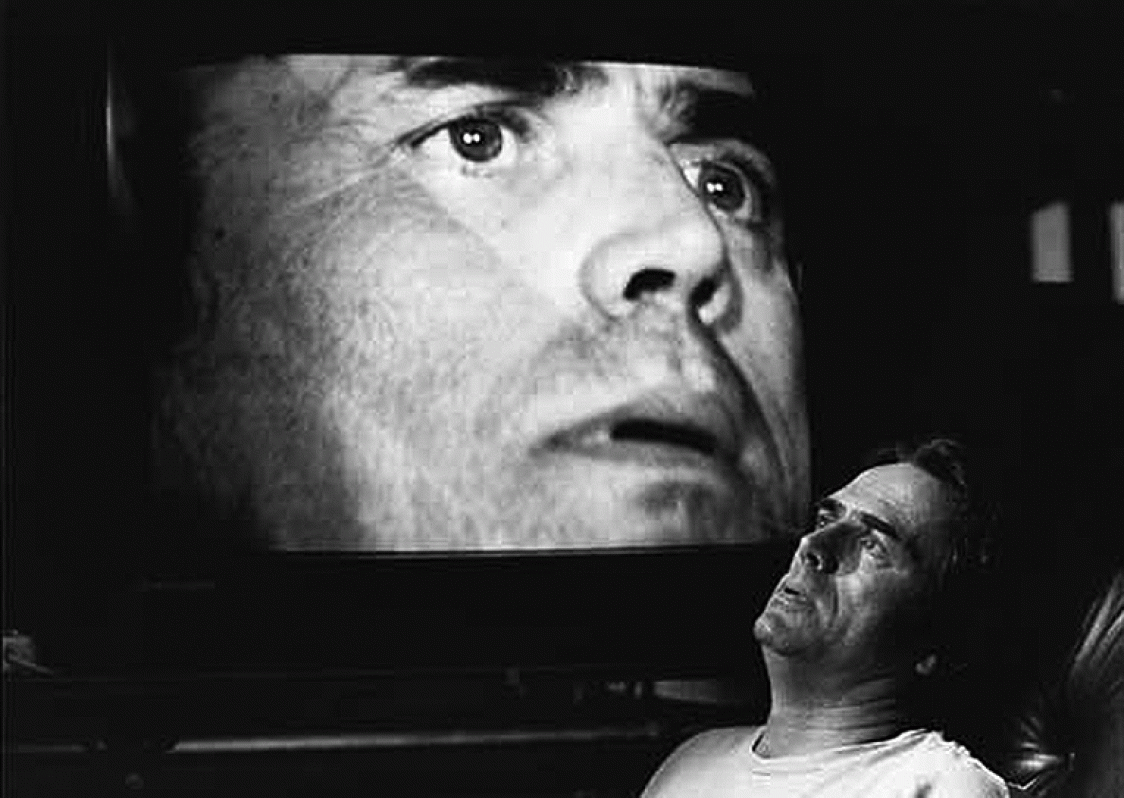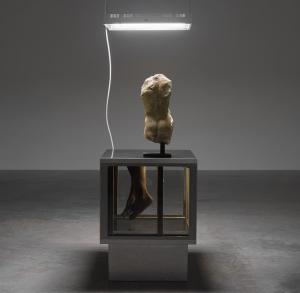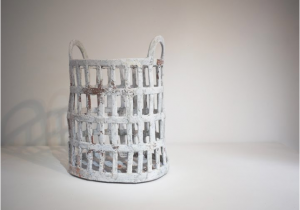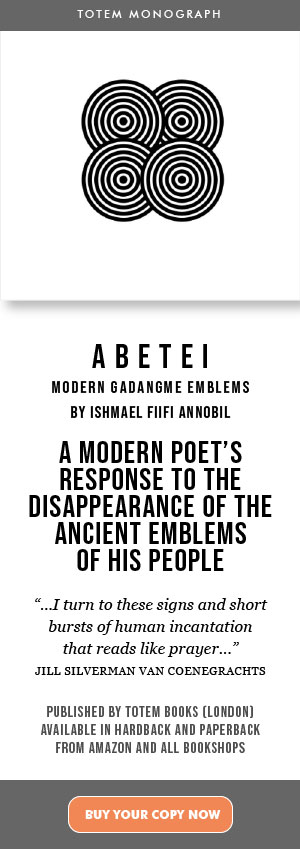DUPE
Performed and directed by Roy Faudree
Date: 30 June - 1 July 1995
Venue: Chapter Arts Centre, Cardiff, Wales
Reviewed by ISHMAEL ANNOBIL
DUPE started with originality: our dark-goggled protagonist enters the undimmed set, left, and proceeds to shut the fire escape himself. For minutes you wonder about what action to call the beginning; washed as you were with disparate sound and video images, all seemingly hooked up purposely for a multi-split-personality, para-ocular viewer.
But that is Celluloid City, U. S. of A; land of self-illusion, perennial heartbreak, rat-races, mercenary instincts, disowned consciences and packaged superegos. Roy Faudree plays a screen writer stuck in all of those, wilfully locked away and working his own manipulative genius.
His work space is a state-of-the-art gym module made of sturdy guage tube sections wired up to the nines, each strand of wire sitting in, astutely, for optic nerves or sensory cells, or their nerve endings. His sedentary existence is supported by a purpose built, versatile swiveller of a chair. He is surrounded by the crumpled refuse of his literary efforts. So he makes a call to the faceless man beyond the pale of anguish, who, as well as being in a hurry to hang up, is gullible enough to react to hooks of dialogue laid on by the lonely writer.
In this dialogue, the caller, eclipsed by his wife's successes in Celluloid City, calls women names, coughing up neurotic theories to circumnavigate the woman mystique. He reacts with mock irritation at the protestations of the unseen, liberated man 'friend', till he gains his catharsis; then he shocks us. He plays back the conversation on his tape recorder with a quite gloat, sure that he has wrung out something to Fill in the big gap in his screenplay.
Then the drama progresses (technically speaking, after the tedium of listening to the schizoid game-plan), and surrealism steps in. The perfectly synced videos come to life, each with its own independent mind, each of them an alter ego of the writer's, each a repository of his suspended conscience. A perfect dialogue ensues between writer and alter ego, which finishes with an exhortation from Video Ego that Writer can be God if he wants to be. It also challenges him to face the facts about his real self.
Feeling crumbled by such exotic power over him, wrier resolves to prove his human supremacy over his diligent proxy ego, by pre-empting its every next word, and, in what may be called the finest moment in the play, he moves out of its viewpoint, thereby eluding him, and teases: "Over here, I am over here..."
Sometime in the melee he reaches for a well clad booze, downs it at a go. Lets start facing the facts with women, he almost swears, and indeed we see, or are confused by, the agony. Broken marriage, custodial matters, longing for son, role playing. Also, the entire panoply of psychological changes in a man confronted by a modern career woman. "You sometimes have to play the woman with her".
More than that, Mr. Writer also attempts to woo with various male types, till the God complex starts to haunt him. It starts with a bath tub bound Hitler, through to a hip Jesus, all being played on the videos above his sprawled out form.
Intercutting the jumbled drama somewhere, a long close-up video sequence emerges of a finger lasciviously stroking what seems like a tongued female genitalia, till it is pulled back slowly to show a dejected writer masturbating his own mouth.
Presently, a dream sequence occurs, charged with a piece of surreal reminiscence. A farm somewhere, a kicking cow, a wind, a blinding sandstorm. Was it his death? Here you begin to think that you have been watching a man from the hereafter, until he admits: "I am desperate!"
That was Roy Faudree, the award-winning director, performer and member of the world famous Wooster Group at work. Bordering on physical theatre. Dupe's physicality is unsurpassedly sublime, difficult in essence, and mesmerising. Faudree's performance was electric, and very Nuyorican, though it pandered slightly to the dictates of shock theatre. In the end the paternoster it sunk below the waterline failed to pull up much philosophical catch.
Problem is, the nastiness of caged man toward free woman remains'palpably' unresolved, leaving the avid catcher of gender offenders absolutely dismayed, although I suppose the underlining derangement and jaundice of the protagonist may be seen as a victory for liberated women.
No Theatre is Roy Faudree, Tom Schiedin and Sheena See.





